Carnivore vs. Keto: Which One is Right For You?
Primal Edge Health participates in the Amazon Services LLC Associates Program and other affiliate programs and therefore, may collect a share of sales or other compensation from the links on this page. This comes at no additional cost to you, and all the prices and availability are accurate at the time of publishing.
When you search for low-carb diets, you might come across the carnivore diet vs. keto debate. These diets are two of the most popular low-carb diets today, both being very low-carb and boasting numerous health benefits, including weight loss.
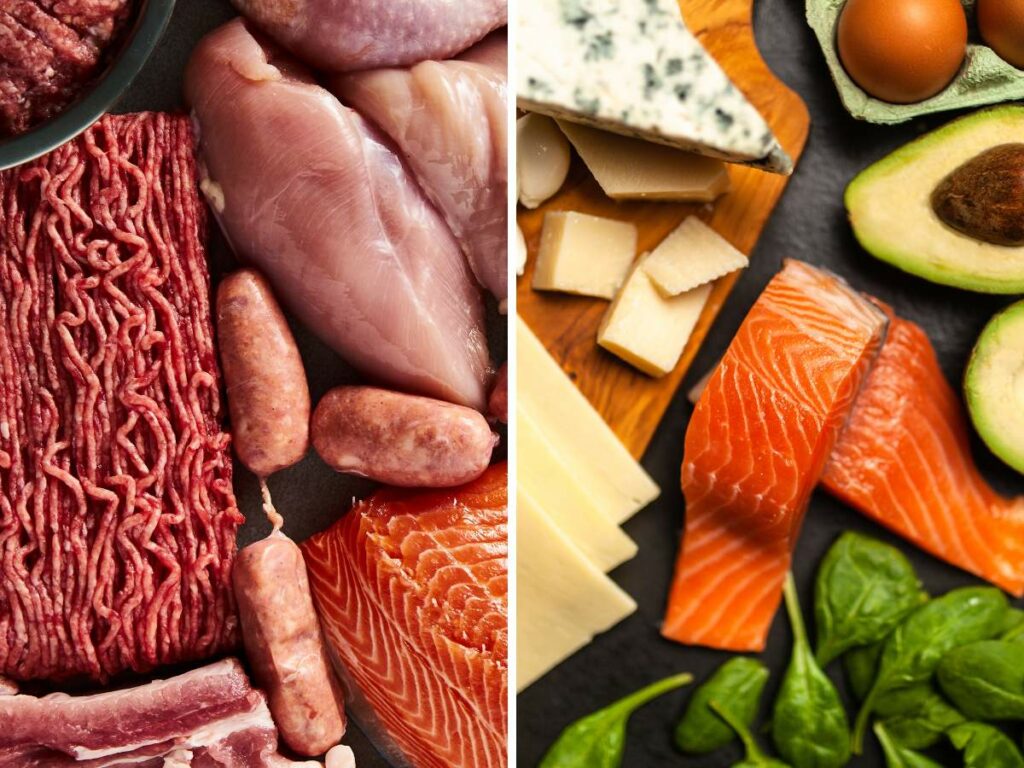
When I first started my low-carb journey in 2009, I found dozens of diets and protocols at my disposal. Then I started asking myself, “Which diet is right for me?” Today we’re just focusing on two because they are similar enough to be easily confused. Read on to learn more about the carnivore and keto diets, how they differ, and which one may be the right fit for your lifestyle.
Table of Contents (click to view)
What is the Carnivore Diet?
The carnivore diet is a type of elimination diet that focuses on eating nutrient-dense animal products while removing all fiber and plant foods. Yep, just like the carnivorous animals in the wild.
This diet is not just about enjoying meat for all your meals. The primary goal is to focus on bioavailable, nutrient-dense foods. This happens by maximizing protein and fat intake from animal foods while pushing carbohydrates down, essentially to zero. In doing so, your body may enter a state of ketosis, wherein the body uses fat as the primary energy source instead of carbohydrates.
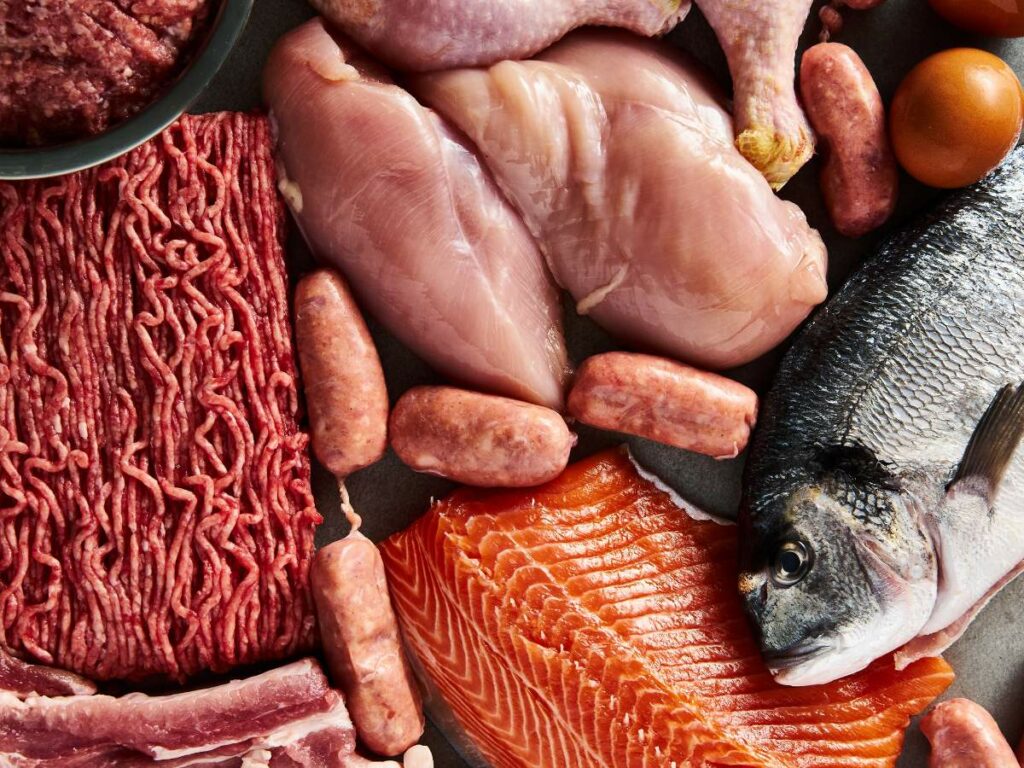
What are the Potential Benefits of the Carnivore Diet?
Protein and fat-rich foods are delicious, and the prospect of eating them for every meal is attractive in and of itself. However, the main goal of the carnivore diet is to unlock its potential health benefits, including:
- Weight loss: A team from Harvard studied 2029 participants following a carnivore diet for 14 months. The respondents reported significant body mass index (BMI) reductions along with other physical improvements, such as increased energy levels. Moreover, participants with Type 2 diabetes experienced greater weight loss than the entire group.
- Less inflammation and relief for autoimmune conditions: In the same study, more than half of the participants stated that the carnivore diet helped improve inflammation, allergies, and autoimmune conditions. The researchers related this finding to the fact that some plants may have inflammatory and allergenic effects on people with sensitivities.
- Reduced cravings: Participants also reported high levels of satisfaction from following a high-fat diet. Protein-rich foods have a more satiating effect than carbohydrates, meaning you feel full and satisfied if your meal consists of more protein than carbs. This could lead to better impulse control and fewer cravings, especially for sugar.
What is the Ketogenic Diet?
The ketogenic diet has been popular for a decade now, and it’s one of the first things that come to mind when people think of a low-carb diet. The primary goal of the keto diet is similar to the carnivore diet: eat more protein and fats and reduce carbohydrate intake.
From the name itself, the desired outcome of the keto diet is to make the body enter a state of ketosis by eating high protein and high fat foods. However, there is still an allocation for carbohydrates. The number varies from person to person, but generally, proponents of this diet recommend 50 to 60 grams of total carbs a day or a maximum of 30 grams of net carb.
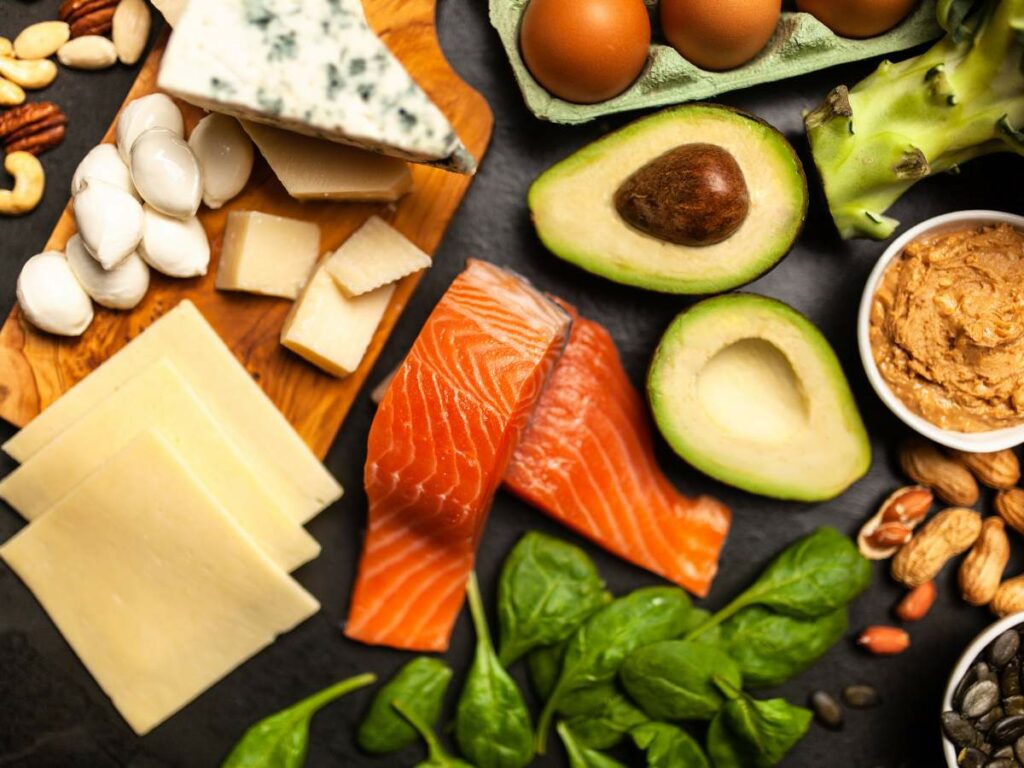
What are the Potential Benefits of the Ketogenic Diet?
Unlike the carnivore diet, there has been a lot of focus on the keto diet from the academic world. Several studies have shown evidence the keto diet may provide, such as:
- Weight loss: Wajeed Masood and his team conducted a study on the potential health benefits of keto. One of their key research points was the diet’s effect on obesity. They cite a meta-analysis of 11 studies that show more significant weight loss for low-carb groups compared to low-fat groups. This evidence is partially attributed to the ketosis-inducing effect of the diet, wherein the body switches to fat stores as the main fuel source, along with a controlled calorie intake.
- Diabetes control: A study on ketogenic and Mediterranean diets showed that participants who followed a well-planned keto diet benefitted from better blood sugar control and insulin sensitivity, as well as an overall reduction in body weight (which contributes to Type 2 diabetes). Another study revealed that the ketogenic diet has helped participants reduce their HbA1c levels and reduced their need for diabetes medications.
- Reduced inflammation and oxidative stress: Research on the anti-oxidant and anti-inflammatory effect of the keto diet shows evidence of reduced inflammation and oxidative stress in some patients. Researchers state that the diet could be an effective alternative for people with chronic inflammation.
- Fewer cravings: A low-carbohydrate diet like keto involves a lot of high-protein foods that are more satiating than carbohydrate-rich meals.
Carnivore Diet vs. Keto: What’s the Difference?
As we’ve mentioned before, the carnivore and keto diets seem similar at first glance. These popular diets are both rich in proteins and fats and low in carbohydrates. However, there are key differences between these two:
Food Choices
The main difference between the ketogenic diet vs. carnivore is the types of foods you can eat. A well-formulated keto diet food list consists of a wide variety of foods, including:
- Beef, pork, lamb, and chicken
- Fish and seafood
- Milk, cheese, and other dairy products
- Veggies, legumes, nuts, and low-carb fruits
- Butter, olive oil, lard, tallow, ghee
- Bone broth
On the other hand, the carnivore diet eliminates all plants or plant-based foods, possibly including plant-based liquids like coffee or tea. Hence, a carnivore diet may be too restrictive for some people who still want to enjoy fruits, vegetables, and other plant sources.
Another area of concern is fiber, which is essential for good digestive health and avoiding constipation for most people. The keto diet allows some fiber through fruits, vegetables, and whole grains.
You might be worried about the lack of fiber in the carnivore diet. Yes, there are limited fiber sources in a zero-carb diet, but fiber may not be essential for overall health. In fact, a study published in the World Journal of Gastroenterology reveals that a low or zero-fiber intake can reduce idiopathic constipation and its related symptoms. More specifically, reduced fiber and carb intake means less stool to excrete, making bowel movement easier for people with chronic constipation.
This might not be true for everyone, so always make sure to talk to your doctor or dietitian about your recommended fiber intake. Getting personalized advice is very important.
Nutritional Value
The ketogenic diet provides significantly more food choices than the carnivore diet because you’re still including fruits, vegetables, and herbs. In contrast, you eliminate several food groups with the carnivore diet by focusing on animal-based foods.
Both of these diets carry a risk of nutrient deficiency if you don’t balance your macro- and micronutrient intake. You need to make sure you’re getting all the essential nutrients through the foods recommended by each diet. This is why it’s crucial to talk to your healthcare provider before starting any of these diets; some people aren’t fit for a keto or carnivore diet due to existing nutrient macro or micronutrient deficiencies and other health issues.
Cost
With the rising price of groceries in recent years, the cost of either diet is a valid concern. Meat, milk, and egg prices are soaring and, depending on where you are, fresh produce can be expensive, too.
I’d say that the cost of either diet is relative, depending on the foods you choose. However, the money you save from processed foods can offset the cost of fresh, whole foods. More importantly, investing in your health now can come with long-term savings when you’re not paying for health-related issues in the future.
Here’s a guide on how to shop for a carnivore diet on a budget and a keto shopping list for beginners. Plus, check out this guide on how to find quality foods that should help you find high-quality ingredients for both diets without breaking the bank.
Potential Health Benefits and Risks
The keto and carnivore diets operate towards the same goal, which is a metabolic shift towards ketosis. Based on the research we’ve mentioned above, ketosis can result in rapid weight loss as the body burns fat stores due to the lack of sugar, which is the first thing the body uses for energy.
Other possible benefits include reduced inflammation, cravings, and food sensitivities. Moreover, keto and carnivore dieters from our testimonial group also report improved mental clarity and performance.
However, there is room for error in both diets. Without proper nutrition planning, a keto diet can lead to keto flu, too much intake of unhealthy fats or processed food, digestive issues, and nutrient deficiencies. A carnivore diet has all the same potential risks.
Consulting a doctor or dietitian can help you explore more of these possible risks and benefits relative to your current health and diet. In the meantime, we can help you learn more about going low-carb so you can make an informed decision.
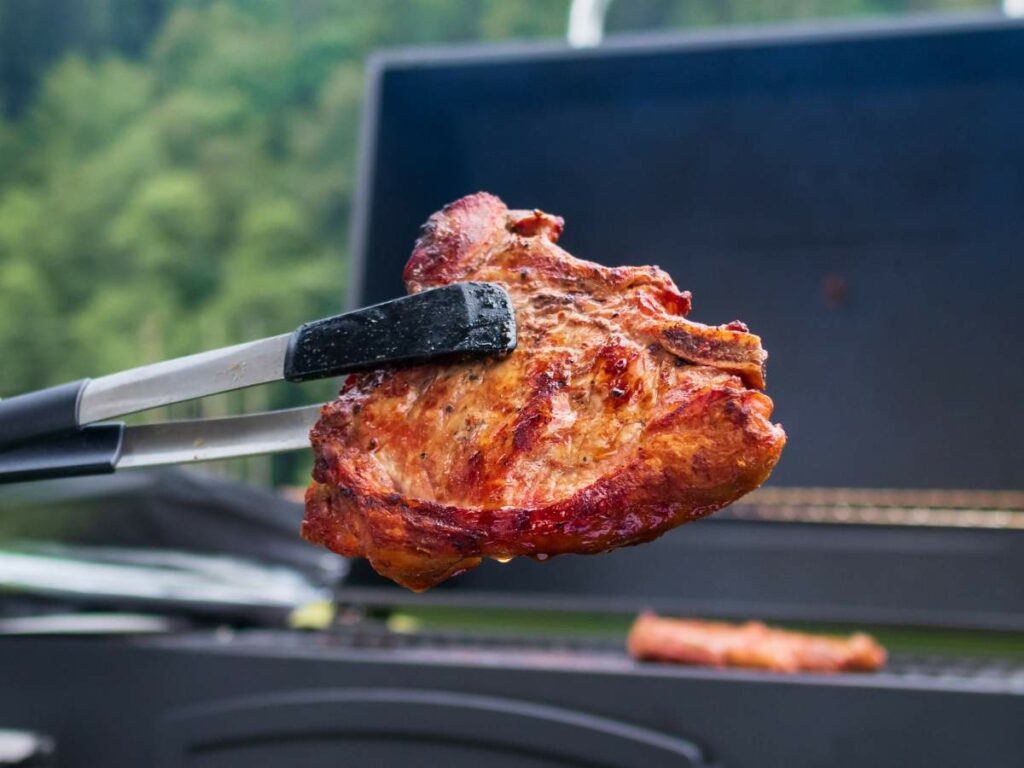
Which Will Work Best For You?
There is no straight answer to which diet will work right for you. The effectiveness of any diet will depend on several factors, including your body type, lifestyle, physical activity, and any underlying medical conditions.
All that said, you must check in with your doctor before making significant changes to your diet. They will determine if it’s physically safe for you to go keto or carnivore and see if you have any conditions contraindicating these diets.
Additionally, they might recommend vitamin and mineral supplementation if you plan to start an elimination diet. I also highly suggest working with a licensed dietitian who can help plan your diet with optimal variety and minimal risk of nutrient deficiency.
In general, it might be a good idea to start with the ketogenic diet if you get a green light from your doctor. It’s less restrictive than the carnivore diet, and if you want to switch to it, you can eliminate certain foods one by one to see which ones are triggering your sensitivities. Alternatively, you can follow a keto carnivore (also known as the ketovore diet) for a wider variety of nutrient sources long-term.
Conclusion
When discussing the carnivore diet vs. keto, we can’t easily determine which one is the winner. There’s no need for a winner, anyway. What we want is to know more about these diets and decide which one will fit best with our unique circumstances.
So, if you’re thinking of starting keto or a carnivore diet, work with your trusted healthcare professionals and deepen your research by reading through our wealth of resources here on the blog.





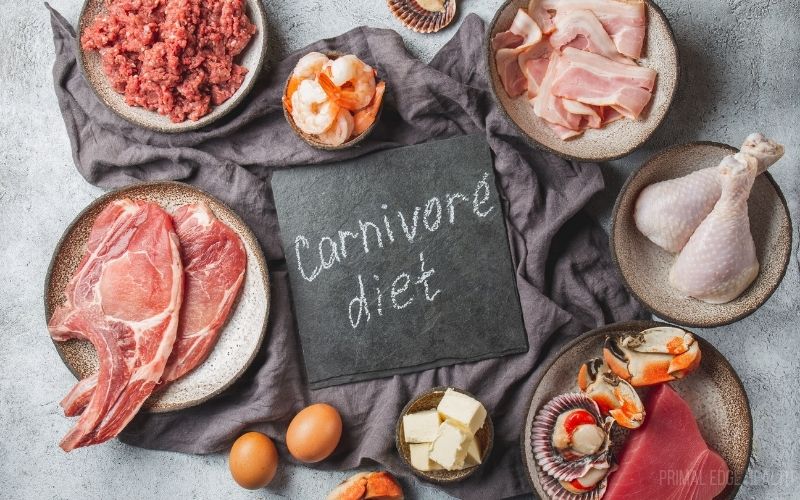
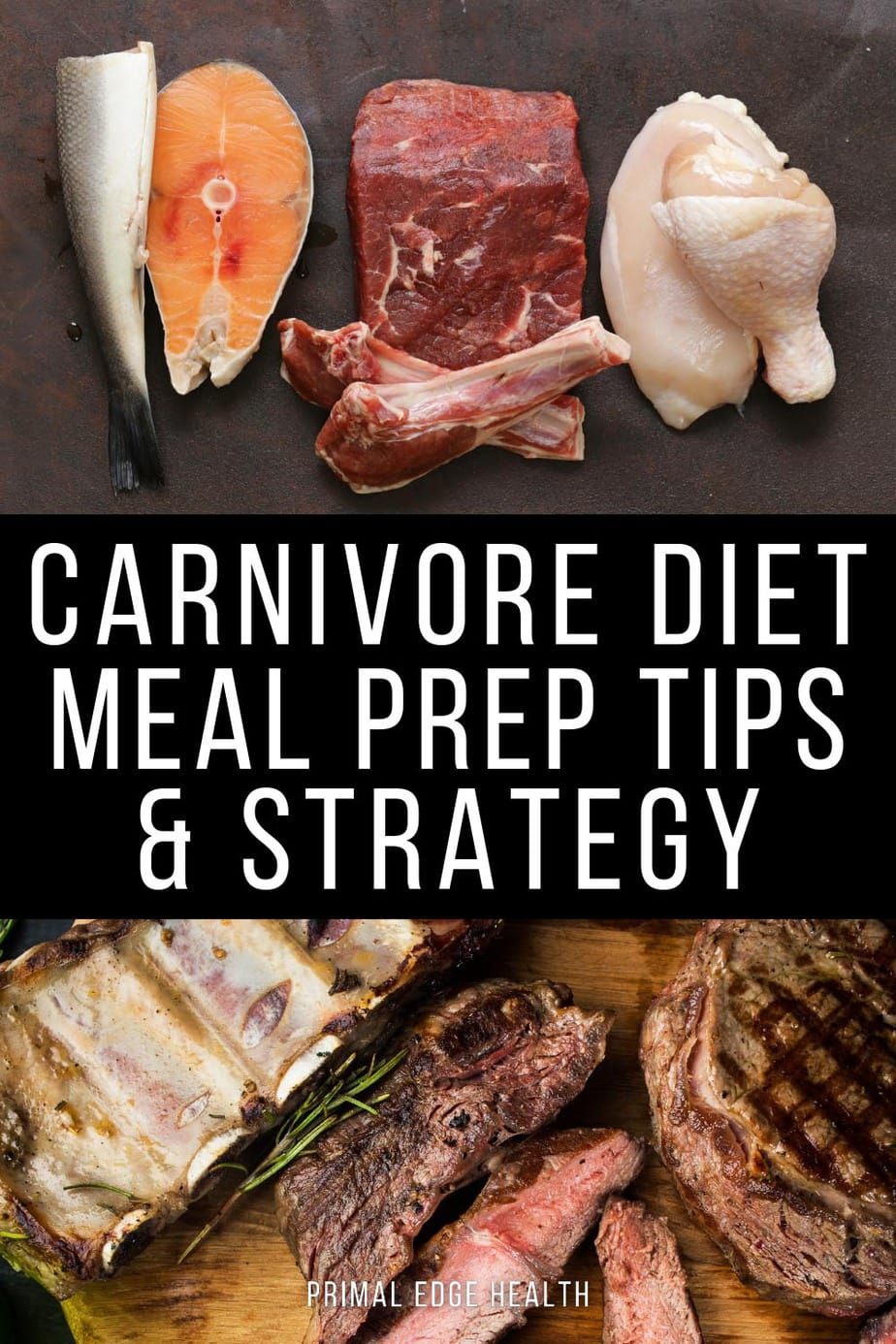

My mother has been experience a number of health issues recently and due to her high inflammatory markers, the doctor has suggested that we look into low carb diets for her. This was all very helpful in making us a feel a little less overwhelmed. TY!
Low-carb diets can be overwhelming at first, for sure, but the learning curve eases up very fast. Hang in there, and thanks for your readership 🙂